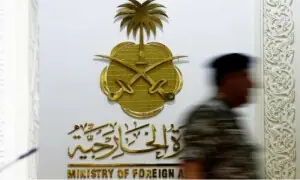IMF to dispatch mission to Pakistan next week for $7b bailout package evaluation
3 min readThe International Monetary Fund (IMF) has announced it will send a mission to Pakistan next week, four months ahead of the planned schedule, to evaluate the country’s performance under its $7 billion bailout package.
This early review comes in light of Pakistan’s mixed implementation of the conditions agreed upon during the loan approval.
The IMF Mission’s expedited visit highlights the program’s significance for IMF management and board members, offering an opportunity to reassess targets that Pakistani authorities believe may have already become outdated just one month after the loan’s approval.
The IMF Pakistan Mission Chief, Nathan Porter, will lead the delegation, which is expected to review progress on approximately 40 conditions tied to the bailout.
While the finance ministry spokesperson, Qumar Abbasi, did not respond to requests for comments, officials clarified that the mission is focused solely on assessing Pakistan’s performance during the July-September quarter.
Traditionally, IMF reviews occurred quarterly; however, the new program stipulates biannual assessments. The initial schedule set the first review for March 15, 2025, and performance criteria for the end of December 2024. This upcoming mission will evaluate results from the July-September targets and progress for the October-December quarter.
Outgoing IMF Resident Representative Esther Perez also did not comment on the mission’s objectives, as the next review is anticipated in early 2025. Within the government, opinions are divided on whether to adjust program targets or maintain the original goals despite some initial setbacks. Some officials advocate for resetting certain targets, particularly concerning revenue, while others argue that the IMF’s previous stance provides little room for renegotiation.
Should Pakistan adhere to the original targets, it may need to consider a mini-budget to address shortfalls from the first quarter and expected gaps in the second quarter. Another potential solution could involve offsetting tax targets by leveraging savings from reduced debt servicing costs due to recent interest rate cuts.
The IMF Mission typically comprises experts in various fields, including monetary policy, financial markets, digitalization, sovereign debt, climate financing, and fiscal affairs.
Pakistan’s fiscal performance for the first quarter has been mixed. The State Bank of Pakistan met its monetary targets, and the finance ministry exceeded its budget surplus target. However, the Federal Board of Revenue (FBR) fell short of its revenue collection target, and provincial governments did not meet their collective cash surplus goals due to overspending by Punjab. The finance ministry reported a shortfall of Rs182 billion, or 53%, in the provincial cash surplus target of Rs342 billion. Additionally, the government struggled to support the FBR’s efforts to collect Rs10 billion from traders in the first quarter, missing the target by nearly 99.99%. Overall, tax collection fell short by Rs190 billion over four months, with the FBR collecting Rs3.440 trillion against a target of Rs3.632 trillion, despite record-high taxes imposed this year.
Government officials have alerted the media to the expected revenue shortfall, attributing it to discrepancies between target assumptions and actual results. Furthermore, provincial governments missed the end-October deadline to legislate an increase in agriculture tax rates to 45%, facing challenges from limited cooperation between federal and provincial governments in enforcing IMF conditions.
Read more
Pakistan fails to meet IMF cash surplus target, shortfall reaches Rs182b
Risk of Rs500b mini-budget looms as govt fails to meet IMF demands
IMF asks Pakistan to strictly implement loan programme conditions: sources
According to a Ministry of Finance report, Pakistan met IMF targets for the primary budget surplus and net revenue collection by the provinces, achieving a primary surplus of Rs198 billion, with total surpluses amounting to Rs3 trillion or 2.4% of Gross Domestic Product (GDP). This higher surplus resulted largely from accounting for the annual profit of the central bank in the first quarter.
For the latest news, follow us on Twitter @Aaj_Urdu. We are also on Facebook, Instagram and YouTube.

























Comments are closed on this story.